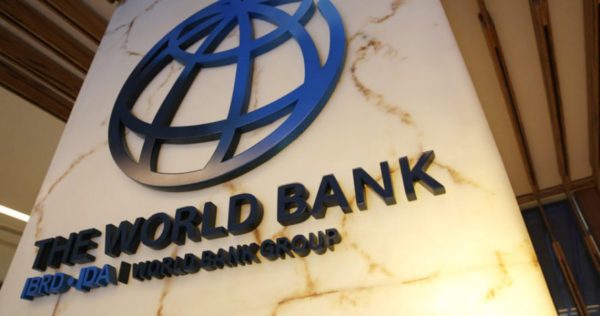The World Bank Group has predicted that sub-Saharan Africa will fall into recession in 2020 as its GDP is projected to contract by -3.3 per cent even as it predicted that their economies would rebound by 2.1 per cent in 2021.
The bank in a statement at the ongoing virtual IMF/World Bank Annual Meetings 2020 said “driven by the economic fallout of the COVID-19 global pandemic, growth in Sub-Saharan Africa is predicted to fall to -3.3 per cent in 2020, pushing the region into its first recession in 25 years.
The bank said the pandemic could also drive up to 40 million people into extreme poverty in Africa in 2020, erasing at least five years of progress in fighting poverty. With over a million reported COVID cases across the continent, the pandemic, it said, is still not under control in Sub-Saharan Africa.
“Some governments, notably Senegal and Mauritius, have acted rapidly to reduce the spread of infections; however successful containment measures come with a high economic cost, as has been seen across the globe. “The road to recovery may be long, and it may be steep, but prioritising policy actions and investments that address the challenge of creating more, better and inclusive jobs will pave the way for a faster, stronger and inclusive recovery for African countries,” said Albert Zeufack, World Bank Chief Economist for the Africa regions.
READ ALSO: https://www.thexpressng.com/2020/10/15/nnpc-to-end-oil-for-fuel-swap-deals-soon/
“Nigeria’s real GDP contracted by 6.1 percent year-on-year in the second quarter of 2020—the worst result in more than a decade. South Africa, operating under severe containment measures, saw its real GDP contract by 17.1 percent year-on-year in the second quarter of 2020. Angola, Sub-Saharan Africa’s second largest oil producer after Nigeria, saw its economy contract by 1.8 percent year-on-year in the first quarter of 2020. The decline in growth has been stronger among metals exporters where real GDP is expected to contract by six percent, partly reflecting the large drop in output in South Africa. Among oil exporters, after expanding by 1.5 percent in 2019, real GDP is projected to fall by more than four percent in 2020, owing to contractions in Angola and Nigeria,” said the bank.
World Bank noted that in contrast, for non-resource-intensive countries, the decline in growth in 2020 is expected to be moderate, on average, adding that in several non-resource-intensive countries, including Côte d’Ivoire, Ethiopia, and Kenya, growth is expected to slow substantially, but remain positive, owing to their more diversified economies.
Meanwhile, the tourism-dependent economies, especially those of Cabo Verde, Mauritius and the Seychelles, experienced a sharp contraction as exceptionally weak international tourism severely impacted the service sector. The substantial downturn in economic activity will cost the region at least $115 million in output losses this year. Gross domestic product per capita growth is expected to contract by nearly 6.0 percent, in part caused by lower domestic consumption and investment brought on by containment measures to slow the spread of the coronavirus.


